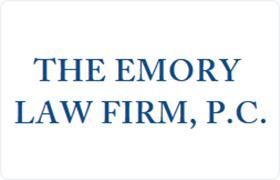Marshville Criminal Lawyer, North Carolina, page 2
Sponsored Law Firm
-
 x
x

Click For More Info:
-
The Emory Law Firm
11020 David Taylor Dr. Suite 102 Charlotte, NC 28262» view mapCriminal Defense Law Our People Make The Difference
We’re dedicated to ensuring that we take care of all of our clients, and that their legal needs are met and exceeded. We offer high-quality legal work and personal client service.
800-972-6341
Charles B. Brooks
Family Law, Criminal, Personal Injury, Accident & Injury
Status: In Good Standing Licensed: 39 Years
Erin Suzanne Hucks
Motor Vehicle, Estate, Divorce & Family Law, Criminal
Status: In Good Standing Licensed: 17 Years
John H Painter
Criminal, Family Law, Traffic, Personal Injury
Status: In Good Standing Licensed: 43 Years
Willie R. Brooks
Accident & Injury, Criminal, Immigration, Traffic
Status: In Good Standing Licensed: 43 Years
Sophia Gatewood Crawford
Traffic, Divorce & Family Law, Criminal, Accident & Injury
Status: In Good Standing Licensed: 29 Years
Onyema Agu Ezeh
Accident & Injury, Criminal, Divorce & Family Law, Immigration
Status: In Good Standing Licensed: 13 Years
Amelia Lynn Beisner
Commercial Real Estate, Federal Appellate Practice, Criminal, Real Estate
Status: In Good Standing Licensed: 35 Years
 C. Randolph Emory Charlotte, NC
C. Randolph Emory Charlotte, NC Practice AreasExpertise
Practice AreasExpertise
